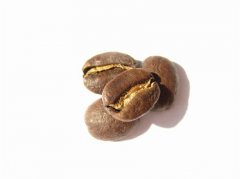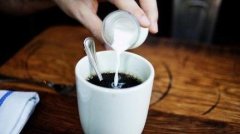For breastfeeding mothers, it is best to limit caffeine intake

Babies do not metabolize or excrete caffeine very well, so caffeine intake by mothers during breastfeeding may lead to caffeine accumulation and symptoms such as wakefulness and irritability, according to a study published in the peer-reviewed journal Journal of Caffeine Research.
Caffeine is found in a wide variety of products, including coffee, tea, chocolate, soft drinks, sports drinks and some over-the-counter drugs.
Is there a safe caffeine intake during breastfeeding? Is there a potential long-term effect of caffeine exposure on infant development and intelligence? If the mother takes caffeine during pregnancy and forbids caffeine while breastfeeding, will the baby experience withdrawl?
Ruth Lawrence, Ph.D., of the School of Medicine and Dentistry at the University of Rochester, answered these questions based on scientific and medical evidence found in breast-fed babies when they were exposed to caffeine. "in general, a mother, especially one who is breastfeeding, is best advised to limit caffeine intake," he said. After the baby is born, the mother "should eat all the food moderately and avoid partial eating as much as possible to prevent the total intake of caffeine.
Important Notice :
前街咖啡 FrontStreet Coffee has moved to new addredd:
FrontStreet Coffee Address: 315,Donghua East Road,GuangZhou
Tel:020 38364473
- Prev

Coffee grounds help to remove the poisonous smell of dirt
There is good news for coffee lovers around the world: the large amount of coffee grounds they throw away helps remove the toxic smell of dirt. In the American Journal of Hazardous Materials, researchers at the City University of New York published a study saying that coffee grounds can absorb hydrogen sulfide gases, which are often caused by the fact that the dirt smells so bad. Now the common practice is to use activated carbon.
- Next

Women who drink coffee regularly are prone to bone loss
According to Taiwan's Today News Network, women's calcium intake is insufficient. Be careful not to enter menopause. The phenomenon of bone aging will come first. According to the latest survey, more than 10% of young mature women aged 35 to 49 in Taiwan have already experienced bone loss. Further analysis has also found that more than half of these women with bone loss do not exercise at all and drink coffee regularly, plus they are always away from home for three meals.
Related
- Beginners will see the "Coffee pull flower" guide!
- What is the difference between ice blog purified milk and ordinary milk coffee?
- Why is the Philippines the largest producer of crops in Liberia?
- For coffee extraction, should the fine powder be retained?
- How does extracted espresso fill pressed powder? How much strength does it take to press the powder?
- How to make jasmine cold extract coffee? Is the jasmine + latte good?
- Will this little toy really make the coffee taste better? How does Lily Drip affect coffee extraction?
- Will the action of slapping the filter cup also affect coffee extraction?
- What's the difference between powder-to-water ratio and powder-to-liquid ratio?
- What is the Ethiopian local species? What does it have to do with Heirloom native species?

